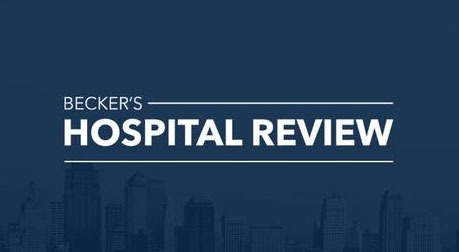As Orlando Health-Health Central Hospital’s new CFO, Jennifer Mojica brings experience from holding various roles within the organization since 2006.
In an interview with Becker’s. Ms. Mojica discussed how her experiences and roles have shaped her leadership style and her transition into financial leadership.
Editor’s note: These responses have been lightly edited for clarity.
Question: Before transitioning into your current role as CFO at Orlando Health-Health Central Hospital, you served as an administrator for environmental and pharmacy services. How did this role help inform your approach as CFO?
Jennifer Mojica: That experience was incredibly formative for me in shaping how I approach my role as a CFO. Leading those two teams, which are critical to the work that we do, helped me understand operations beyond just financial performance.
With our environmental services team, I was really able to spend time with that team to learn firsthand their role in our patient care and our hospital efficiency. They have such a significant role when you think about infection prevention and patient satisfaction. For me, it reinforced the importance that I’m not only budgeting for financial outcomes, I’m also making decisions that are going to impact our quality.
And then if you think about the pharmacy, it really allowed me to gain insight on supply chain management. Thinking about drug costs, the clinical impact that the pharmacy team is making to support our patient care and how operational outcomes are tied directly to that. So for me, being a CFO means being able to apply the real-world impact to those financial decisions that I’m going to have to make, and recognizing how critical it’s going to be for me to collaborate with both clinical, allied health and the support teams.
Q: How has your background with pharmacy influenced your approach to financial leadership in this new role?
JM: My role with the pharmacy was pretty nontraditional. Before stepping into the role where I am now, I was at another one of our facilities that was significantly smaller, and so the administrative team there wore multiple hats. I don’t have a clinical background or pharmacy background, but they needed an administrator who would support them and lead them. That gave me an opportunity to lead that team.
It’s a highly specialized clinical department, so for me, it reinforced the importance of collaboration and remaining curious. I had the opportunity to bridge the gap between finance and clinical, making sure that our strategies are aligned — thinking about patient care and our financial strategies.
Q: You have been with Orlando Health since 2006, holding various roles. What key experiences have shaped your leadership style and approach as CFO?
JM: I’ve had a pretty unique career path with Orlando health. I started almost 19 years ago as an executive assistant, so I had the ability to progress through a variety of finance roles. Most recently, I held the role as senior director of finance for our Orlando Health Horizon West Hospital, which was the first hospital that we’ve built from the ground up in over 20 years.
I had the opportunity to lead teams outside of finance, which really shaped my leadership style into one that’s deeply rooted in relationships, collaboration and focusing on people. It gave me the opportunity to lead among clinical teams, reinforcing my belief that leadership isn’t just about finance or operational decisions, it’s really about understanding the people behind those decisions. I was able to see firsthand how engaged, supported teams are going to drive better outcomes.
For me, empathy and authenticity have always been at the core of who I am in my leadership approach. In times of uncertainty or financial pressure, it’s been important for me to communicate clearly, be genuine in caring for the people and build trust. When you have that, your teams feel heard, they feel valued, and they’re more engaged, and really it directly impacts not only your financial performance, but just the operational success. It’s really about sustaining the people and the processes that make great patient care possible. So, I try to prioritize transparency, collaboration and ensuring that the financial strategies are aligned with our mission and the well being of not only our staff, but also the community that we’re serving.
Q: What challenges and opportunities have you identified in your current role?
JM: I think we can all acknowledge that workforce dynamics over the last few years continue to be a challenge, along with financial pressures, rising costs and access to healthcare.
That said, I think we have identified opportunities to work closely with our community partners, focusing on health literacy investments and expanding our service offerings.
Q: What are some of your key goals for this leadership role in 2025 and beyond?
JM: My focus is really centered around financial sustainability, operational efficiencies and fostering a strong collaborative culture.
Strengthening our financial performance means working closely with our revenue cycle team, improving efficiency in our operational workflows and supporting strategic investments that are going to support us, not only in the short term but in our long-term growth.
Another priority would be enhancing our data-driven decision-making. For me, I value financial literacy, and I believe that both financial and operational decisions can really be driven by real-time data and analytics. This means providing resources, tools and education to our leaders so that they have insight and can make informed decisions about their areas.
Investing in our people and culture is also a priority. I want to foster an environment where it’s a collaborative culture, where finance is supporting — not directing — the operational clinical success. For me, it’s cross-department communication and making financial education accessible to all of our leaders. Strategic growth and innovation are essential, whether that’s evaluating new service lines capital investments, like purchasing a new CT scanner, or exploring new ways to examine access to care.
Above all, it’s about making finance less intimidating for our leaders. I recognize that finance can really feel complex and intimidating, and I want our leaders to see finance as a tool to help them make better decisions.







